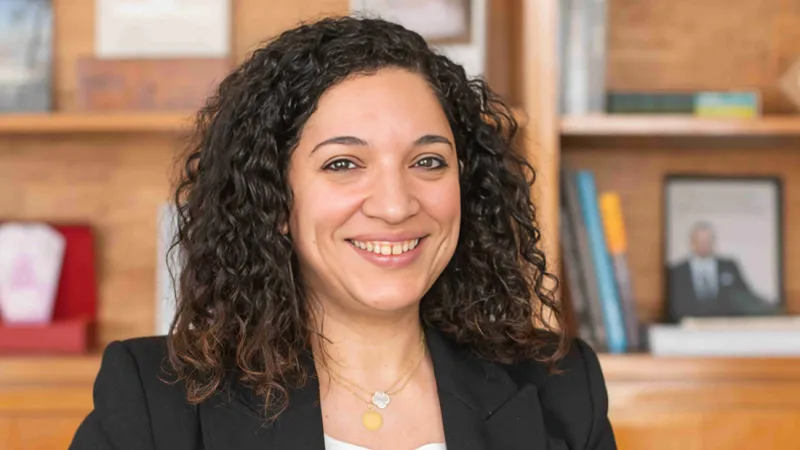Gen Z pop culture is key to financial literacy in Southeast Asia
By Shom MabaquiaoCan money talk ever be fun? Maybank says yes.
Last January, the financial services company awarded Southeast Asian schools and educators that successfully made financial literacy ‘fun’ for kids. Using Maybank’s localised and Gen Z-fied animated series, the programme spells a bright financial future for Southeast Asia’s Gen Alpha.
However, financial literacy is needed now, especially by the newly minted Gen Z who entered a workforce plagued by global recession. This cohort transitioned from undergrads to entry-level employees hustling, with 14% already having a second job but still eating ramen from breakfast to dinner.
‘Short attention spans’ and ‘general indifference’ are attributed to Gen Z’s chronically online nature. This makes it easy to look at these attitudes as the main reason why only 30% of Southeast Asians are confident with their financial savviness.
However, a recent report by UK-based insight practice Canvas8, shows that interest is not what prevents SEA Gen Z from being smart about their money—it’s resources. Namely, they lack the resources to learn about money, access their money, and earn money. Much like Maybank’s financial literacy programme, the secret to engaging Gen Z in financial literacy can be found in local pop culture.
Invest in informed influencers
Seven out of 10 Gen Z eagerly learn about things they’re interested in—from esports to anime and even, for 63% of them, financial planning. But they don’t dig for information from just anywhere. They want to learn from people they trust, such as friends or family.
The thing is: Asian elders tend to tiptoe around the topic of finance as it’s deemed culturally sensitive or simply hard to explain. School doesn’t prove much help either, with institutions focussed more on algebra and calculus rather than filing taxes and calculating contributions.
So Gen Z resorts to self-education with the help of online gurus who make personal finance accessible, digestible, and entertaining. “Fin-fluencers” like SG Budget Babe and The Financial Coconut offer advice about money and its effects on relationships, workplace mental health, and building hobbies. These creators balance personal truths with financial credibility to resonate with Gen Zers grappling with issues such as the cost-of-living crisis and increasing youth unemployment.
Games are a great guarantee
Southeast Asia has 300 million gamers who spend seven hours a week playing. In fact, the region is responsible for securing the global popularity of Asian games like Genshin Impact and Mobile Legends: Bang Bang, which are known for fostering the culture of microtransactions. So it’s no wonder gamification is the number one go-to for financial companies that want to engage young workers.
During the pandemic, the region started to inch closer and closer to becoming a cashless society. The only thing slowing down the widescale penetration of this financial scheme is the highly unbanked and underbanked population of informal workers, who make up around 80% of the region’s workforce.
A lot of young SEA workers don’t have bank accounts, drown in credit, and transact mainly in cash, making it hard to establish financial identity in society. It’s not that they don’t know how to start a bank account; it’s that the process of opening accounts is such a daunting and dragging process of documents and identification that makes things seemingly inaccessible.
With older generations ill-equipped to educate and integrate banking into the region’s youths, a cradle-to-grave financial journey just ends up unimportant to young informal workers.
In recent years, financial startups have been trying to make banking more interactive. Vietnam’s Finful rewards users with money or in-app gifts that provide access to valuable financial resources. Meanwhile, Malaysia’s Raiz and Singapore’s Snack use spare change and micro-premiums to integrate investment in youths’ lifestyles without forcing them to scrimp on little luxuries.
But financial researcher Christoph Hüller has a word of advice for banks who rely on gamification: “From a policy perspective, public awareness of dangers is critical. Gamified investing sites should have visible disclaimers, just as gambling sites warn of addiction risks. Right now, those messages are buried in footnotes or separate pages.”
Manage money through manga
As much as Gen Z wants to, the power of friendship does not equate to purchasing power. This leads them to cut back on savings more times than their favourite anime characters were cut in half.
Almost half of young Singaporeans are worried about making ends meet, much more about saving enough for emergencies. Meanwhile, young Filipinos want to save at least a fourth of their monthly income, but can realistically only save 10% with the incessant inflation in the country.
This is why Gen Zers are finding it difficult to pay upfront, making Buy Now Pay Later (BNPL) schemes like Shopee PayLater and Billease such an enticing option for this region of online shoppers. It helps those who are already cutting down on household spending and even small pleasures like dining out. The BNPL mechanism makes expenses a lighter burden…or so they think.
According to Dr Christina Chua, the senior vice president and product lead at KGI Asia Singapore Capital Markets, “If (SEA Gen Z) don’t think much about purchasing something and end up buying into these BNPL schemes, they could get a bad credit record and have a hard time procuring housing loans in the future.”
Unless they turn into anime pirates, a notorious record doesn’t translate to higher bounties in our world. So to help Gen Zers plan their credits and investments, Singaporean advisers Gen Z Group, The Woke Salaryman, and The Simple Sum use the power of graphic novels to engage the 76% of global manga fans who reside in the Asia-Pacific region.
“Companies may not be that open to alternative forms of education yet, but when they meet Gen Z where they are, they will find a lot of powerful tools that can help them learn and debunk their existing misconceptions regarding finance and investing,” says Persis Hoo, the business manager of investment organisation Next Gen Investors Endowment.




![SBR 5 Lorem Ipsum News 2 [8 May]](https://cmg-qa.s3.ap-southeast-1.amazonaws.com/s3fs-public/styles/exclusive_featured_article/public/2025-05/a_hand_pointing_to_a_futuristic_technology_5b87c9d0e3_3.png.webp?itok=M3Hf-9XR)
![SBR 4 Lorem Ipsum [8 May Top Stories]](https://cmg-qa.s3.ap-southeast-1.amazonaws.com/s3fs-public/styles/exclusive_featured_article/public/2025-05/a_hand_pointing_to_a_futuristic_technology_5b87c9d0e3_2.png.webp?itok=2m5Wl0MX)


![Exclusive three SBR 12 Lorem Ipsum [8 May]](https://cmg-qa.s3.ap-southeast-1.amazonaws.com/s3fs-public/styles/exclusive_featured_article/public/2025-05/a_hand_pointing_to_a_futuristic_technology_5b87c9d0e3_11.png.webp?itok=8kn_UIfA)
![SBR 3 Lorem Ipsum [ Exclusive 2]](https://cmg-qa.s3.ap-southeast-1.amazonaws.com/s3fs-public/styles/exclusive_featured_article/public/2025-05/a_hand_pointing_to_a_futuristic_technology_5b87c9d0e3_1.png.webp?itok=YCyjLegJ)
![SBR 2 Lorem Ipsum [8 May]](https://cmg-qa.s3.ap-southeast-1.amazonaws.com/s3fs-public/styles/exclusive_featured_article/public/2025-05/a_hand_pointing_to_a_futuristic_technology_5b87c9d0e3_0.png.webp?itok=_cKD-29o)

![Video [Event News]](https://cmg-qa.s3.ap-southeast-1.amazonaws.com/s3fs-public/styles/event_news_featured_article/public/2025-05/screenshot-2025-05-08-at-4.58.53-pm_0.png.webp?itok=Kud35sMs)
![Event News SBR 9 Lorem Ipsum [8 may]](https://cmg-qa.s3.ap-southeast-1.amazonaws.com/s3fs-public/styles/event_news_thumbnail/public/2025-05/a_hand_pointing_to_a_futuristic_technology_5b87c9d0e3_8.png.webp?itok=DTh_dbYp)
![Event News SBR 9 Lorem Ipsum [8 May]](https://cmg-qa.s3.ap-southeast-1.amazonaws.com/s3fs-public/styles/event_news_thumbnail/public/2025-05/a_hand_pointing_to_a_futuristic_technology_5b87c9d0e3_7.png.webp?itok=vzDAzb6V)
![Event News SBR 8 Lorem Ipsum [8 May]](https://cmg-qa.s3.ap-southeast-1.amazonaws.com/s3fs-public/styles/event_news_thumbnail/public/2025-05/a_hand_pointing_to_a_futuristic_technology_5b87c9d0e3_6.png.webp?itok=jvHFc4P6)
![Video [Event News]](https://cmg-qa.s3.ap-southeast-1.amazonaws.com/s3fs-public/styles/video_thumbnail/public/2025-05/screenshot-2025-05-08-at-4.58.53-pm_0.png.webp?itok=yZnI0YBb)
![Video 1 SBR [8 May]](https://cmg-qa.s3.ap-southeast-1.amazonaws.com/s3fs-public/styles/video_thumbnail/public/2025-05/screenshot-2025-05-08-at-4.58.53-pm.png.webp?itok=9AAeRz_k)

 Advertise
Advertise

